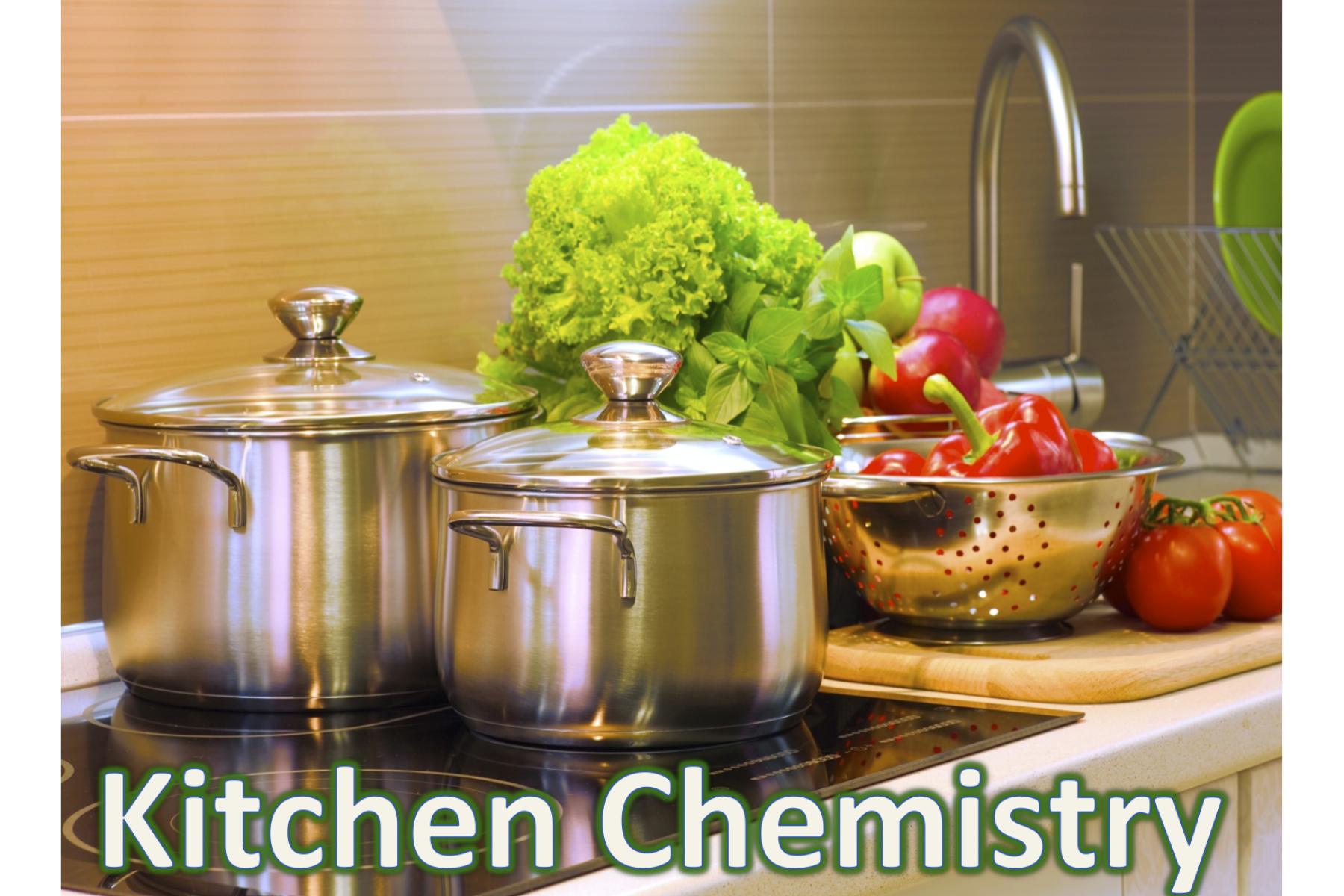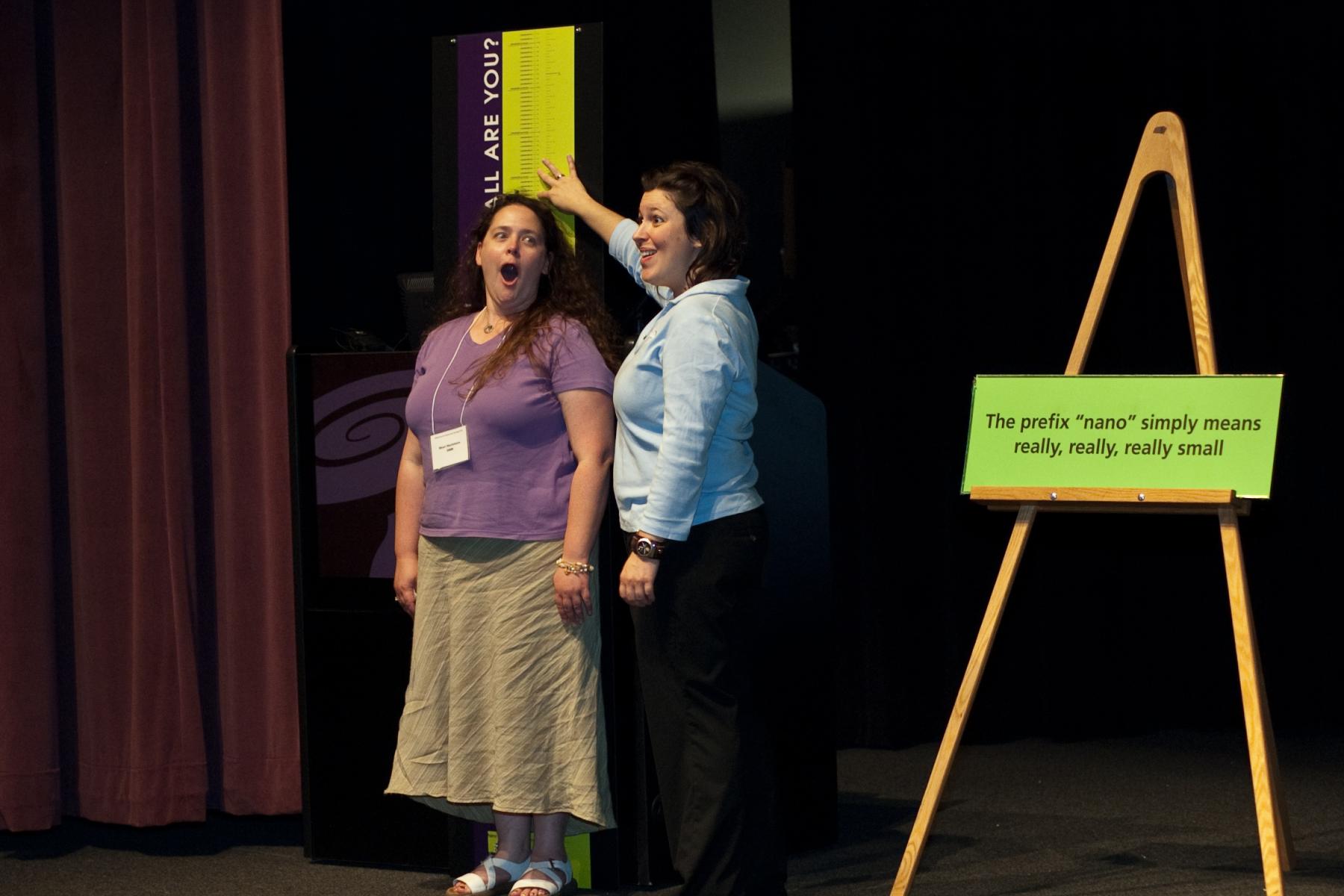DESCRIPTION
"Kitchen Chemistry" is a live stage presentation about recognizing and exploring the science that we practice every day in our very own homes. We take a look at the chemistry behind a seemingly simple bowl of spaghetti – from boiling water, to the behavior of starches and lubricants both on the macro- and nanoscale, to the nanosensors that determine our perception of taste and smell; how cooking is a complex chemistry, and how we are complex in the ways we experience our food. The presentation consists of multiple demonstrations, many including audience participation.
DESCRIPTION
"Kitchen Chemistry" is a live stage presentation about recognizing and exploring the science that we practice every day in our very own homes. We take a look at the chemistry behind a seemingly simple bowl of spaghetti – from boiling water, to the behavior of starches and lubricants both on the macro- and nanoscale, to the nanosensors that determine our perception of taste and smell; how cooking is a complex chemistry, and how we are complex in the ways we experience our food. The presentation consists of multiple demonstrations, many including audience participation.
OBJECTIVES
BIG IDEA
Chemistry can often be perceived as a complex science, and yet just by doing something as basic as preparing food, we are practitioners. Likewise, “nano” can often be perceived as a complex idea, and yet just by doing something as basic as consuming food, we are having a “nano” experience.
LEARNING GOALS
Recognize that they are practitioners of chemistry at home, often daily.
Understand that boiling water, the way starches behave, the effects of lubrication, and our perception of taste and smell is chemistry.
Learn that our noses are nano-sensors, and that our perception of food scent and flavor is the result of a nano experience.
NANO CONTENT MAP
Nanometer-sized things are very small, and often behave differently than larger things do.
Scientists and engineers have formed the interdisciplinary field of nanotechnology by investigating properties and manipulating matter at the nanoscale.
Credits
Science Museum of Minnesota
Developed for the NISE Network with funding from the National Science Foundation under Award Numbers 0532536 and 0940143. Any opinions, findings, and conclusions or recommendations expressed in this product are those of the authors and do not necessarily reflect the views of the Foundation.
Creative Commons Attribution Non-Commercial Share Alike 3.0 United States (CC BY-NC-SA 3.0 US).
View more details

NISE Network products are developed through an iterative collaborative process that includes scientific review, peer review, and visitor evaluation in accordance with an inclusive audiences approach. Products are designed to be easily edited and adapted for different audiences under a Creative Commons Attribution Non-Commercial Share Alike license. To learn more, visit our Development Process page.


